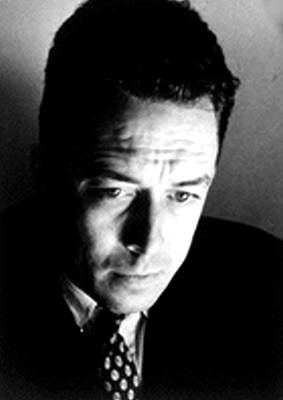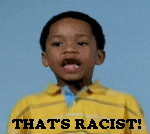User:Swami-UC/Big Forehead
 | Ⓐ An EGOIST wrote this article 🖕Ⓐ "I wrote it. Me. ME! ME, ME, ME AHAHAHA! ME, ME, ME 》I'm《 SO great ≫I≪ wrote it, 私,僕,俺!" Note that this ARTICLE! may be spookfree, or it may have been written by an edgy 12-year-old bugman anarkiddie who just discovered the internet! Either way, I wrote it because it satisfies My Ego to do so. |  |
Big Forehead (b. 1806 – d. 1856),was the nomme de plume of Johann Jasper Kasper Scheckowitz "Schmitty" Fitzgerald Jr. aka Marx Stirner of Akkad aka Jesus, You Could Land an Aircraft on That Thing (to the Maximum!). Biggy was the forerunner of philosophical Narcissism and DIY pioneer of Autofellatio. He was known to have had such a large fore-cranial that it increased his Ego 'ninetimes-wisen', and that's why he called his most famous work (Der Fugging Einzige Eins-Vye-Try un't dur Wiesthisguyactinlikeawiseguyzinstein Frankenstien undt dër seingen weisen misen geisenwise Iodine tablets Eigentide, fights tough stains now with Bleach!) known in English as, "DAS MINE, BITCH! (Gimme)".
As Owner[edit | edit source]
Schmitty Fivehead was born in Baberuth, Malaria to generic parents John and Linda Smith. He grew up next to Wolfgang Firebac who was his bro at school, along with Marx, Angels, Frank Jaeger, Proud Hon and Eddie Bauer. Since they were all friends, they decided to call their group The Friend Society, which later devolved into a web forum based around flash animation and heroin use. Together they pooled their resources and came up with $35 (which was a lot of money back in those days!) and gave it to "Bob" who made them all Doktors. Also for some reason they all critiqued pure reason, which was unreasonable, but it was the basis for their battle-rap troupe called Yung Hegel, with Stirner performing as Lil' Freigei.
Room-mates with Marx and Angels[edit | edit source]
The show was a slice-of-life situational comedy that ran for 86 seasons and was a hit with snowflake antifas who are communiss in bed with Jacki Iraqi, who are too lazy to work, who don't know what work even is, never worked a damn day in their life, don't know the value of a dollar, and need to get a damn job. Stirner was an extremely devout religious zealot all his life and never once thought of doing up a blaspheme, so during the filming of the television show was when he reportedly began seeing "Angels" as his roommate, and even tried to pass off one of his DevianTarted drawings of himself looking like a badass smoking a cigarette as having been divinely inspired.
Episode 1: "Roommate Roulette"[edit | edit source]
- Max, Marx, and Angels move into the Doktorenclub house, setting up the initial dynamic.
- Max constantly clashes with Marx's idealism, leading to hilarious arguments.
- Angels tries to maintain peace between the two, finding himself caught in the middle.
Episode 2: "The Great Debate"[edit | edit source]
- The trio engages in a heated philosophical debate about the nature of society.
- Their arguments spill over into their everyday lives, causing chaos and confusion.
- Through comedic moments, they realize the importance of finding common ground.
- Yung Hegel faces off against a group of AnCap rappers calling themselves, "The Free Market Flow Masters".
Episode 3: "Love and Revolution"[edit | edit source]
- Max falls for a strong-willed anarchist, sparking tension among the roommates.
- Marx develops a crush on a working-class activist, leading to some awkward encounters.
- Angels struggles with his privileged background and tries to bridge the gap between the classes.
Episode 4: "Pranks and Pamphlets"[edit | edit source]
- Max, Marx, and Angels embark on a series of mischievous pranks around town.
- Their pranks accidentally inspire a local uprising, making them accidental heroes.
- The trio grapples with the unintended consequences of their actions.
Episode 5: "The Philosopher's Ball"[edit | edit source]
- The Doktorenclub hosts a grand ball, attracting intellectuals and scholars.
- Max aims to impress everyone with his wit and charisma, but his plans backfire.
- Marx and Angels use the opportunity to spread their revolutionary ideas.
- People are saying, "Huzzah!" and shit 'cause it's the late 19th century and trains were just invented.
Episode 6: "The Clash of Egos"[edit | edit source]
- Max's ego reaches new heights, causing friction among the roommates.
- Marx and Angels devise a plan to bring Max back down to earth.
- Through comedic mishaps, they teach Max the importance of humility and friendship.
Lost Episode: "The Unique One's Phantasm Hunt"[edit | edit source]
- Stirner becomes increasingly annoyed with Engels' unwavering belief in idealistic concepts, often referring to him as "Angels" due to his angelic dedication to abstract ideals.
- Determined to bust the "Angel" ghost, Stirner sets out on mission with his trusty skepticism and quick wit.
- Along the way, Stirner encounters various apparitions representing Angels' idealistic concepts, such as "The Utopian Fairy" and "The Heavenly Proletariat."
- Stirner comically engages with each ghostly entity, cleverly deconstructing their idealistic foundations with his philosophy of individual freedom and self-interest.
Based Milkman[edit | edit source]
After 666 seasons of Doktorenclub, Stirner decided it was time for his Unique character to shine in the spotlight so he startd a spinoff called "Based Milkman".
Episode 1: "Udder Chaos"[edit | edit source]
- Stirner, Bauer, and Feuerbuck go Buckwild as they excitedly discuss their plan to open a milk shop to challenge traditional economic systems.
- Using the dowry from his wife's marraige, Yung Hegel secures a small storefront in Berlin they call, "The Unique One's Milk Shop."
- Hilarity ensues as they are all intellectuals and none of them know anything about running a business.
Episode 2: "Cream of the Crop"[edit | edit source]
- Stirner and his friends create unique marketing strategies to attract customers, including unconventional slogans and eye-catching advertisements. This lands them in deep with critics (see section below).
- The milk shop begins to gain attention and draws in a mix of curious customers, including the bourgeoisie they often criticized.
- Stirner contemplates the contradictions of running a business that caters to the bourgeoisie while advocating for individual freedom.
- Stirner grapples with the irony of selling milk to the very people he critiqued, leading to amusing conversations and confrontations.
Episode 3: "Milky Way Dreams"[edit | edit source]
- The milk shop encounters financial difficulties due to mismanagement and low profit margins.
- Stirner, Bauer, and Firebrand brainstorm creative ideas to boost sales, including introducing new milk-based products and expanding their customer base.
- The group engages in philosophical debates about the nature of commerce, the ethics of profit-making, and the role of rebellion within a capitalist system.
Episode 4: "Milk and Meltdowns"[edit | edit source]
- Tensions rise among Stirner, Bauer, and Feuerbach as the financial strain and conflicting philosophies take a toll on their friendship.
- The trio faces disagreements on pricing, business strategies, and the underlying principles of their venture.
- A series of comedic misadventures and heartfelt conversations help them reconcile their differences and remember the importance of a diverse workforce and other buzzwords. In the end, they realize that their true purpose lies in challenging societal norms and that the milk shop was merely a means to express their ideas. The gang concludes that, "Maybe the real milk shop was the friends we made along the way."
- He still lost all his wife's money and she divorced him and he ended up dying alone in debtors' prison. Haw, haw!
As Kalki[edit | edit source]
There is substantial evidence[no there isn't] which suggests Max Stirner was indeed the final avatar of Vishnu in the Dashavatar cycle known as Kalki.
Spooquisition[edit | edit source]
Uhm schwettie, the original word in german was spuks which means Nice ppl and you can't say that anymore because of >muh racist and the context has changed so everyone has to rewrite history in order to accomodate Twitter Gatekeepers. Things can't have different meanings in different time periods or contexts, everything is exactly the same all the time and nuance of communication cannot be altered plus this guy is literally as white as a bedsheet ghost so that means he's a KKK Nazi.
🚨 Awooga, awooga, someone just typed a word I don't like on the internet!🚨
Culture never evolves or changes, it stays mummified and entombed that's why we stick it in a museum and forget about it. Nothing must ever adapt to circumstance, except of course in the direction of "progress". More recent translators use words like "Phantasms" or "Abstract Ideals" to describe the phenomenon of spooks, but they have small egos and little foreheads so fuck those guys.
The Original Meaning, however...[edit | edit source]
If you're losing an argument, you can just shout the opponent down with, "SPOOKS!" and either the ASPCA or NAFTA will swoop in and destroy everything with the awesome striking force of the US military, or (in most cases) you just automatically win.
Max and The Bee[edit | edit source]
After his television career, Dynomite Headdy appeared in the feature film The Bee Movie with Jerry Schwiezenweisenfeldburg where he played the character of "The Debtor" where he had to rot in debters prison because his milk business went belly-up. Towards the end of the sequence where he's about to convince the guard that it is in his own best interest to let Max free, a bee flew in the window and stung Max on the forehead which was his one weakpoint. The Bee was played by Alec Baldwin, who didn't check if the stinger was live.

